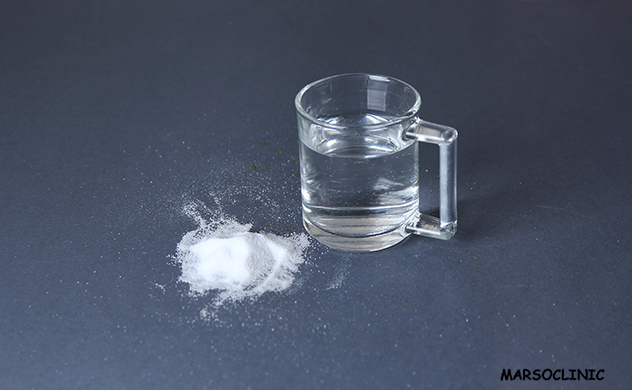does ibuprofen help with sore throat and cough

If you have a sore throat or existence of sores in the throat bothers you and you want to use ibuprofen to relieve your discomfort, we recommend that you read on.
Is ibuprofen appropriate for cases of sore throat and cough?
Sore throat is accompanied by problems and pain when eating and drinking and sometimes even pain when talking. Sometimes you experience a sore throat with a cough.
What causes your sore throat plays a key role in whether or not ibuprofen works.
Inflammation of the throat and tonsils, bacterial, viral and fungal infections of the throat and tonsils, the presence of tumors and malignancies in the throat and larynx, gastric reflux, radiotherapy to the head and neck, and sometimes chemotherapy can cause sore throats.
Of course, taking ibuprofen will not be very effective if the cause of your sore throat and cough is a tumor.
Pain and secondary cough to the tumor will not be relieved with ibuprofen.
If gastric reflux causes chronic sore throat and cough, taking ibuprofen will not only be sedative and therapeutic, but ibuprofen and related drugs will increase gastric reflux and symptoms by increasing gastric juice secretion.
If you want to know if ibuprofen will be effective for your cough and sore throat, what should you pay attention to?
Management and treatment of sore throats and sores will be strongly due to the underlying cause.
With proper and correct treatment tips, relief from sore throat and cough will generally be possible.
What are the causes of sore throat and sores that are sometimes accompanied by cough?
Once again, we will review the causes of sore throat and sores that are sometimes accompanied by cough:
Bacterial infections
Viral infections:
Cold viruses
herpangina, which is associated with oral blisters following a herpes infection.
Disease of the hands, feet, and mouth caused by Coxsackie A virus.
Fungal infections such as thrush in the mouth and throat caused by Candida albicans.
Chemotherapy
Neck radiotherapy
Throat ulcers and subsequent sore throats will also be common in an autoimmune disorder called Behcet. In addition to sore throats, these patients experience mouth sores and genital sores.
Tumors and cancers can also be associated with sores and sore throats and reactive coughs.
Gastric reflux
What causes esophageal wall ulcers and sore throats?
Sometimes the following factors are associated with ulcers and damage to the esophageal wall and sore throat:
- Gerd
- Bisphosphonates
- Some antibiotics
- NSAIDs
- Fungal infections with Candida albicans
- Wounds caused by the herpes virus or herpes simplex virus
- HIV
- Food allergies
- Drink acidic drinks
- And
- Excessive vomiting is also associated with sores and scratches in the throat and sore throat and cough due to irritation of the throat mucosa.
Sometimes sore throats and coughs occur in people a few days after endoscopy or bronchoscopy, which is normal, and in this case ibuprofen can help you heal faster by reducing inflammation in the affected area.
What are some other symptoms you may experience following a sore throat?
Other symptoms that you may experience following a sore throat are very much related to the underlying cause of the sore throat.
- Nausea
- Vomit
- Swallowing disorder
- Dysphagia
- Painful swallowing
- Ague
- Feeling of a lump in the throat
- Cough
- Feeling suffocated
- Shortness of breath
- Successive clearing of the throat
- Taste changes
- Olfactory changes
- Earache

And Hoarseness and voice change
We said that the appropriate treatment for sore throat and cough will depend on their cause.
Correct diagnosis of the cause of sores and sore throat and cough will be necessary to answer the following question.
Question: Will ibuprofen be useful in relieving sore throat and cough?
Your doctor after taking a detailed history and clinical examination and examining the signs and symptoms with the help of paraclinical methods such as:
Barium swallowing test
Esophageal and gastric endoscopy
Direct examination of the larynx
laryngeal videostroboscopy, which records video with the appropriate processing light through the laryngoscope of movements and functional position of the vocal cords and larynx.
Panendoscopy:
It is used to observe and examine aerodigestive tract (observation of larynx and lower part of throat, mouth, nose, esophagus and trachea) to rule out possible tumors.
Sometimes a CT scan or MRI may be needed.
Specific laboratory tests and routine blood tests will also be requested to check for autoimmune disorders such as behcet's disease and lupus or rheumatoid arthritis.
In what cases will ibuprofen be effective in relieving sore throat and cough?
If there is inflammation of the tonsils or throat, which is caused by irritants or bacterial or viral infections.
Ibuprofen reduces inflammation and swelling caused by infections, controls fever, and relieves sore throat.
In throat abscesses, ibuprofen, along with antibiotic treatments and sometimes abscess relief, will relieve pain and reduce inflammation.
Sore throats and coughs following endoscopy and bronchoscopy also respond well to ibuprofen. Ibuprofen reduces inflammation of the affected areas and thus reduces reactive coughs.
We remind you that many people are allergic to the color compounds of painkillers and anti-inflammatory pills such as ibuprofen color coating. Taking this drug in this group of people is accompanied by sometimes very dangerous swelling of the lips and mucous membranes of the mouth, throat and larynx, so that airway obstruction can block the airway and endanger their lives.
What are the home remedies for sore throats and coughs that have an inflammatory background?
Home remedies for sore throat and cough that have an inflammatory background will be as follows:
- gargling salt and water
- Keeping body hydrated throughout the day
- Drink and eat cold or lukewarm foods
- Drink lukewarm liquids
- Eat mashed potatoes, cheese and cream-like foods
- Avoid fried and spicy foods and hot and spicy foods and avoid hard and annoying foods such as chips and hard biscuits
When should we see a doctor?
- If your sore throat or cough has not improved or worsened in the last ten days with conventional treatments.
- If you have shortness of breath and cannot breathe well.
- If you have bloody vomit.
- If you have neck stiffness and high fever.
You should go to the nearest equipped medical center immediately.